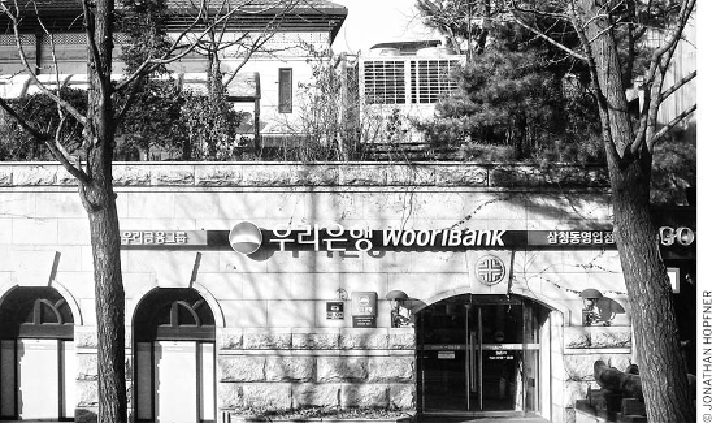Travel Reference
In-Depth Information
a branch of Woori Bank, one of Korea's largest lenders
Too often these sorts of refusals are issued as the easy way out if a bank official can't
be bothered tackling the paperwork or isn't comfortable explaining the matter to a customer
in English. All banks (and sometimes even different branches of the same bank) have dif-
ferent requirements, of course, but don't hesitate to question any decisions or policies that
seem odd to you—at first with the institution's management, and if that doesn't work, with
a helpful agency like the Seoul Global Center. Also consider banking with a company that
has set up service desks or products specifically for foreign residents—Korea Exchange
Bank (KEB) and Shinhan Bank are probably the best examples—or with a local branch of
an international bank such as Citibank.
The South Korean currency is the won, which is divided into coin denominations of 10, 50,
100, and 500 and bills of 1,000, 5,000, 10,000, and 50,000. Coins of 1- and 5-won denom-
inations still make the odd appearance. Preprinted checks (
supyo
) in units of 100,000 and
sometimes 1,000,000 are also commonly used and can even be requested at bank machines.
These basically function like cash but have to be signed in front of merchants, and smaller
shops or restaurants may sometimes be hesitant to take them.

